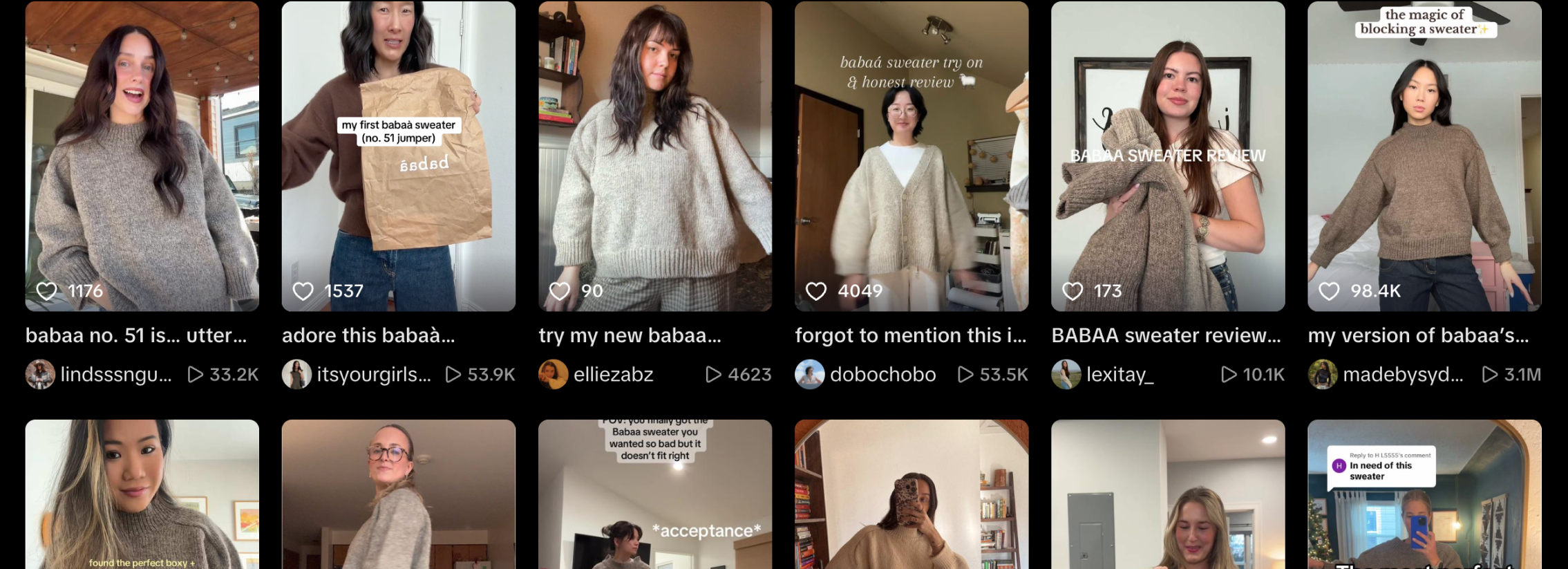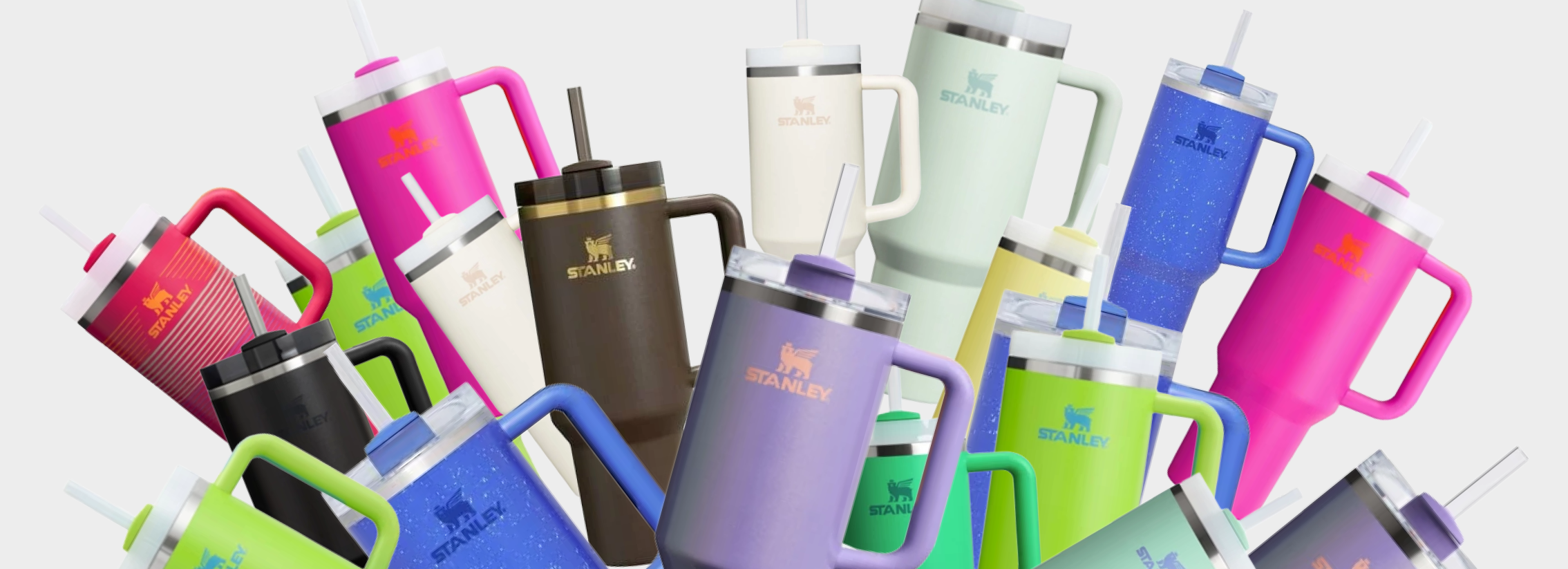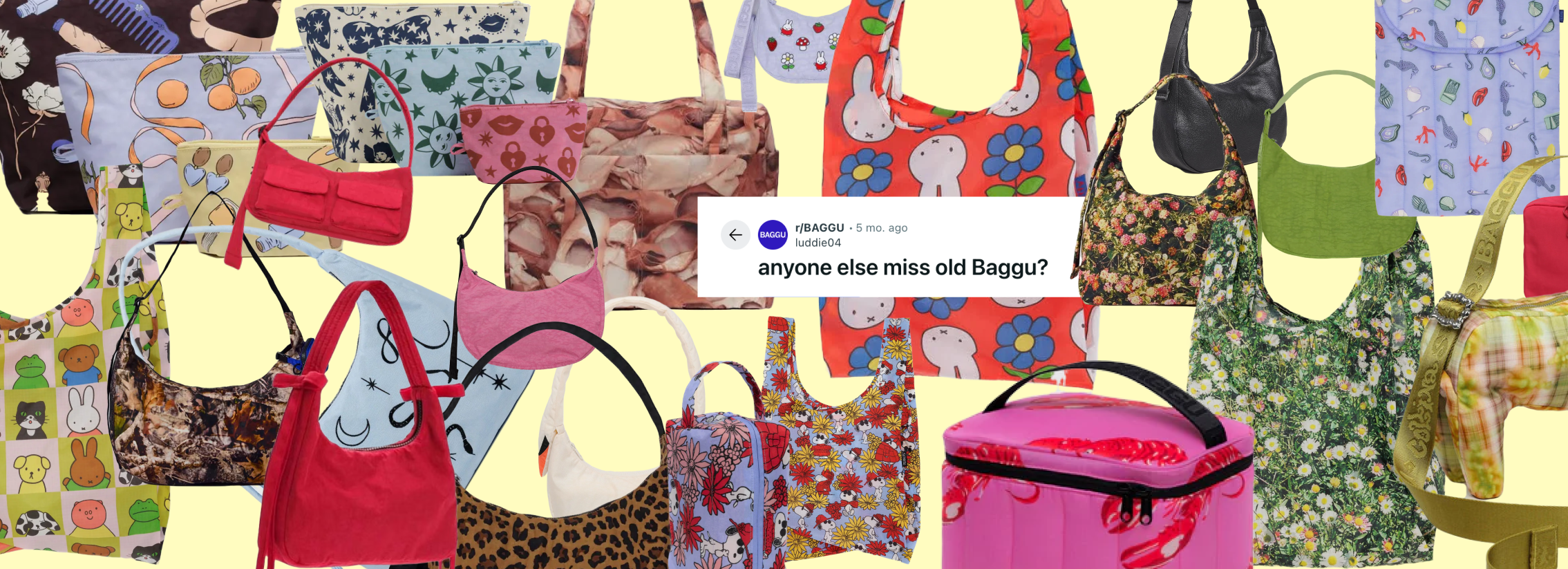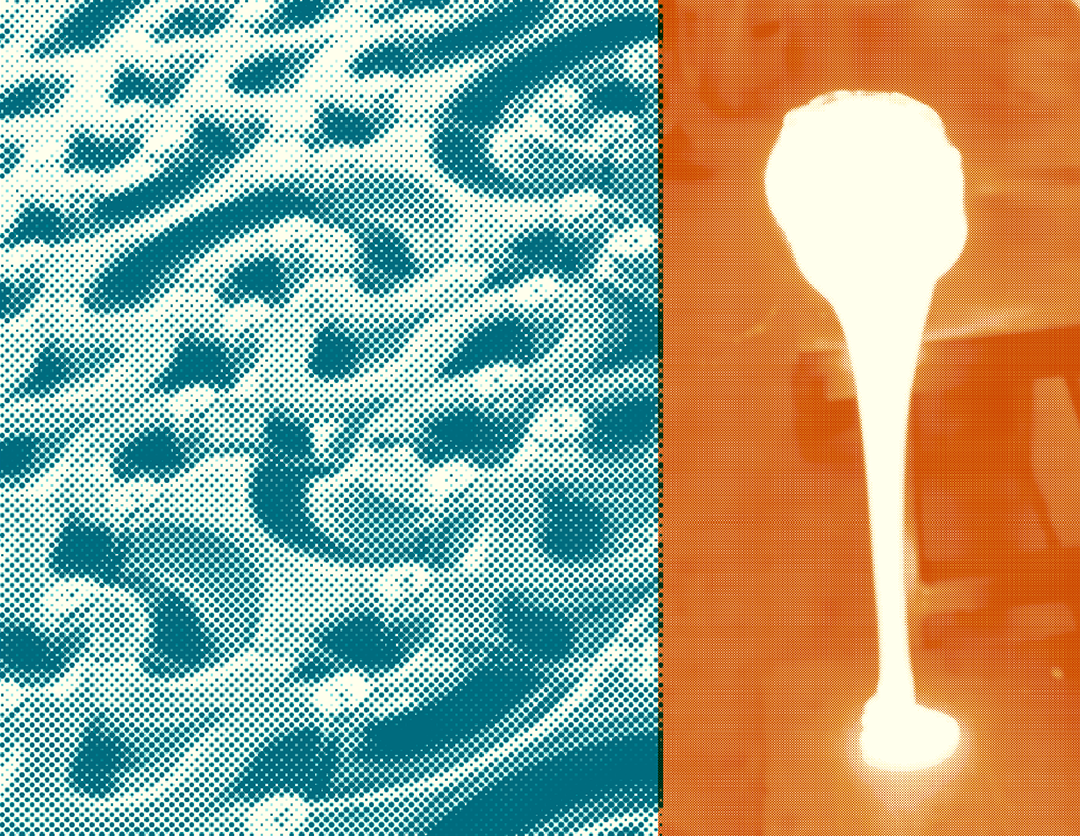.png)
The more time I spend on social media, the more I shop. Our online existence is intertwined with shopping, driven by an explosion of content that is addictively easy to consume. Platforms blend targeted ads into their content grids with alarming precision. Podcasts are interrupted with scripted ads that sound forcibly relatable. Brands text me reminders about items left in my shopping cart as if they are my friends. Today, we shop not until we drop, but until we feel happy.
This nonstop cycle of targeted content and impulse purchases laid the groundwork for the internet's dupe culture to thrive. We are surrounded by online knockoffs, infinite options, and stunningly low prices. It’s changing us and our surroundings until we are left with piles of clothes, online returns, and artificial happiness that eventually drags us down.
Dupe Culture: Democratization of the Internet
When I came across the growing category of “de-influencers”, I started to view my consumption in slow motion for what it really does, or does not, add to my life. De-influencers encourage shoppers to refrain from buying certain products or engage in certain trends. TikTok users go viral for showing mismatched towels and water bottles they’ve owned for years. Comments praise a new type of flex: how long you’ve resisted shopping. For many, what internet culture calls “underconsumption-core” is just normal; you buy something once and use it until it can no longer be used or repaired.
We have developed a craving to shop for more than we need. Shopping has become a form of daydreaming and an outlet for signaling our status to others. The bags we carry, the cars we drive, and the headphones we wear indicate a certain lexicon recognizable to many, but only obtainable for a few.

Many of these status symbols, however, are no longer as authentic or powerful as they once were. The internet has created a more even playing field with deceivingly infinite options at varying quality and price points. For example, we started the year off with the “Wirkin” the Walmart Birkin made viral by a TikToker priced around $100 instead of the usual $10,000. This rising “dupe culture” creates a false sense of control over what we can achieve socially and who we can emulate financially. When everyone can access a version of what was once rare, does status lose its meaning or simply shift shape?
As David Marx writes in Status and Culture, ”The democratization of the internet and globalization of supply chains have lowered the signaling costs for uncommon goods.” The internet’s dupe culture promises you that for every West Elm couch, there’s an Amazon or Temu dupe at half the price. Someone even created a browser plug-in that makes it easier to find dupes. Not all dupes are created equal, however; when nearly anything can be duplicated and sold for less, quality is often the first thing to go.
In response, the category of “quiet luxury” is rising in popularity. People are willing to pay a premium for what dupe culture can’t easily replicate. These items are expensive not because of branding, but because they prioritize high-quality materials and craftsmanship over flashy logos or bargain prices. In a world where anyone can buy a version of anything online, authenticity and quality have become new markers of value.
Quiet Luxury
Followers of quiet luxury don’t care if you recognize their ethically small-batched sweater because they get their validation from you not knowing. TikTok’s algorithm recently led me to try-on videos where women share reviews of Babaà’s astonishingly expensive knitted sweaters, an emblem of quiet luxury. A single sweater goes for around $300, attracting a cult-like following which justifies their collections as lifelong investments.
What’s striking is how the quiet-luxury mindset reframes consumption: not as impulsive or excessive, but as intentional, sustainable, and even virtuous. The appeal increasingly lies in the exclusivity itself, often guarded by high price tags. High craftsmanship and boutique curation now signal status just as loudly as logos once did. In these niche brand communities, knowing where to shop and how much to spend becomes its own form of cultural capital.

Consumption Burnout
The fear of missing out (FOMO) is intensified through online influencer culture. It is harder to separate “fun online content” from sponsored links and one-click checkouts. We are reaching a tipping point where many of us can’t financially or physically consume any more. There’re only so many Stanley cups that will fit aesthetically in our cupboards or pairs of pants that fit in our dresser drawers.

Brands like Stanley and Hydro Flask were originally built on the idea that one durable water bottle could last a lifetime. Now, they release endless colorways and shape variations designed to entice consumers to collect beyond need or function. The marketing cycle has only accelerated with the rise of online influencers who help brands reach niche audiences. This flood of options contributes to a culture of overconsumption that impacts the environment and smaller brands. Many independent brands focused on genuine craft and quality often struggle to compete or contend with trends.
Baggu, the reusable bag brand based in San Francisco, was a niche local brand I discovered in 2018 and started to collect their playful prints. In recent years, they have reached the mainstream. In 2023, The New York Times wrote about Gen Z’s renewed interest in the brand. The key to their success is dropping limited prints, frequently collaborating with Urban Outfitters, and launching new bag designs. Baggu no longer wants you to reuse their bags. They want you to collect them.

Dupe culture, quiet luxury, and consumer burnout aren’t just trends. They are symptoms of a deeper exhaustion with a system that constantly demands we consume to belong. With most things just one click away, we forget that the objects we collect become extensions of ourselves; they define us. Resale apps like Facebook Marketplace are a strange but refreshing corner of the internet, encouraging us to extend the life of objects. These are grounded in the real world by their random assortment of misfit furniture, plants, books, and appliances that become portals into someone’s life. What truly defines us is not the things we buy, but the lives those things take on after they enter ours.






.jpg)

.jpg)